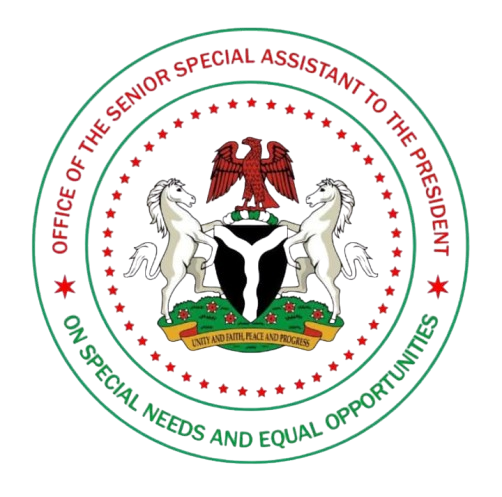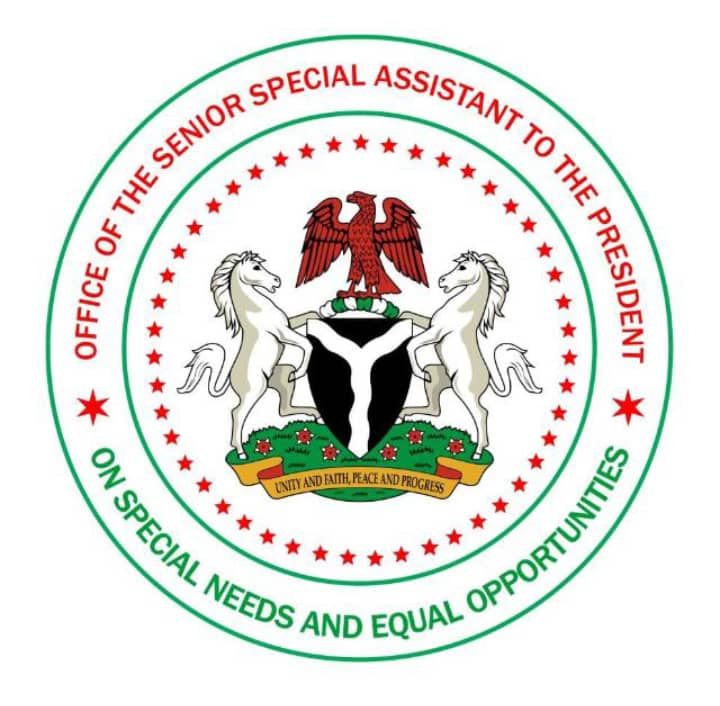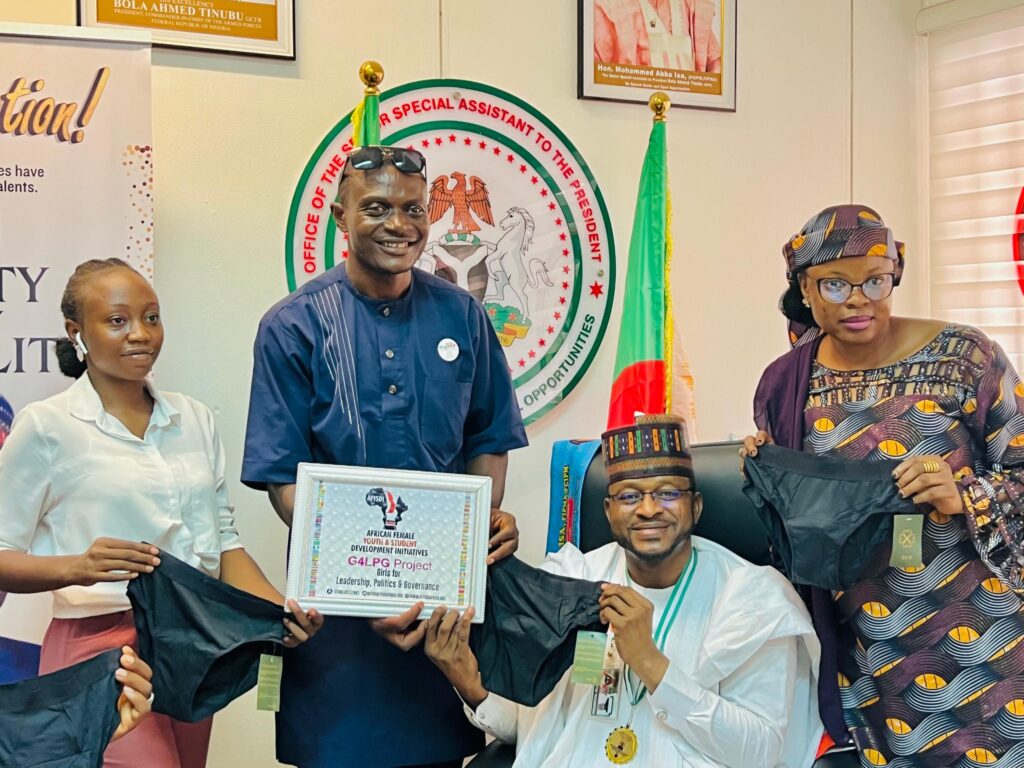
May 28, 2024
By Lanre Oloyede
In a bold move to promote good menstrual health and hygiene practices among women with disabilities, the Senior Special Assistant to the President on Special Needs and Equal Opportunities, Hon Mohammed Abba Isa, has struck a partnership deal with Nigeria Women Economic Development Project, NigWED, to provide access to safe and affordable menstrual products including re-usable sanitary pads.
Hon. Abba Isa, who received the delegation from NigWED in his office in Abuja, stated that he is ever ready to support any initiative and program that improve menstrual health and hygiene, particularly of women with disabilities, most of whom suffer from lack of sanitary products.
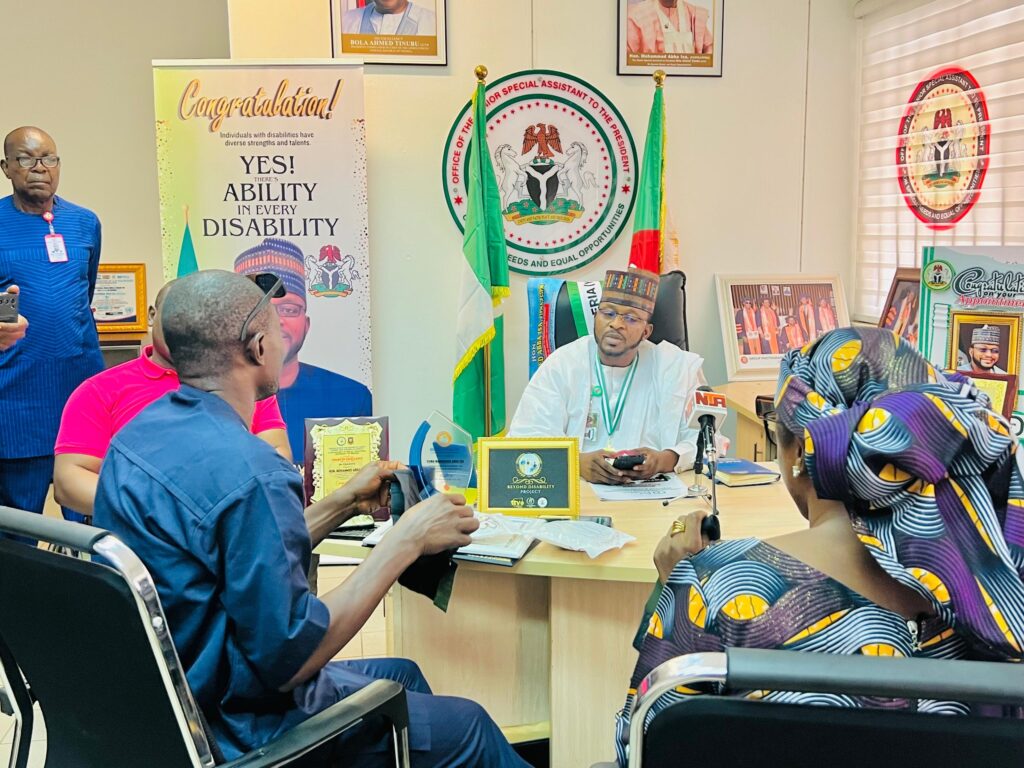
Speaking on the significance of the partnership, the Director-General of NigWED Project, Mr Lugard Okonobo who led a 4-man delegation of Executives of the African Female Youth & Students Development Initiative, stated that the essence of the visit was to strike a partnership with the office of the SSA to promote the campaign on empowerment and provision of re-usable sanitary pads for women and girls with disabilities.
Mr Okonobo explained that the re-usable sanitary is designed with inbuilt absorbents that can absorb any volume of fluid produced during menstrual period and can be washed and re-used, which will save women, particularly PWDs, a lot of money they would have spent on the ordinary disposable pads.
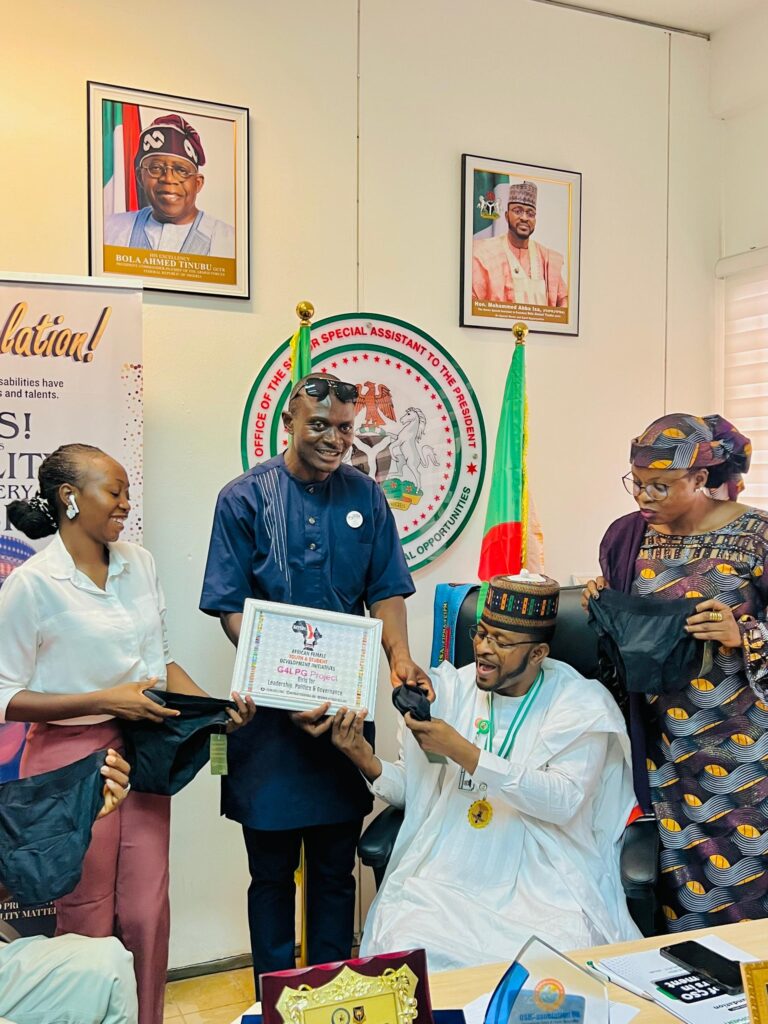
“The pad is easy to wash and doesn’t take time for it to dry,” he said.
The Nig-WED D.G disclosed that the project is aimed at setting up a workshop in partnership with the SSA’s office where women with disabilities will be trained on how to sew these pads and they Will be provided with materials and machines to start.
He added that this project will provide employment opportunities for women with disabilities and improve their income and self-dependent life.
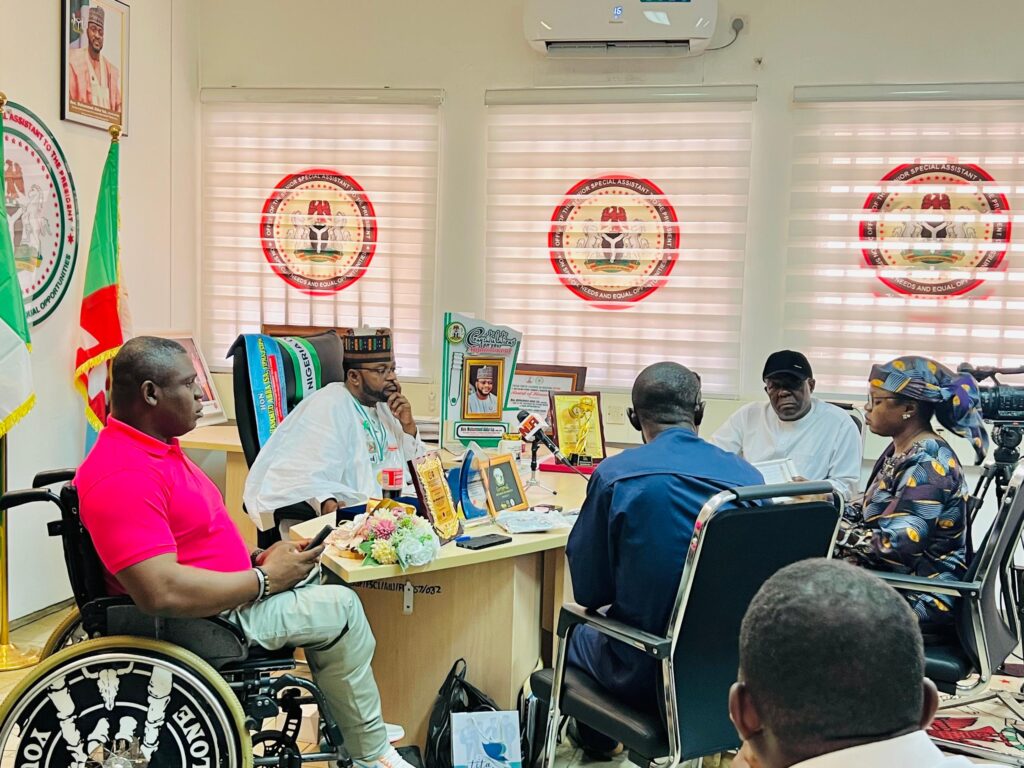
“Today is world menstrual hygiene day, and a lot of women with disabilities suffer from lack of food menstrual care. The cost of pad is about N1,500, how many PWDs can afford that?
“This project is meant to advocate the cause of menstrual hygiene for women PWDs. We are going to provide them the machine and materials. They will learn how to sew and also teach others,” Mr Okonobo stated.
The D.G said the pilot project will soon be flagged off in Karon-majigi disability community in Abuja.
The NigWED D.G further disclosed that the Project also promotes Orange Fleshed Sweet Potato Farming among PWDs to support inclusion.
According to him, a little orange fleshed potatoes sample can produce like three bags and keep multiplying, and has a lot of medicinal value as the leaves can be used to produce herbal tea which can cure many terminal diseases.
He expressed optimism that this project has the capacity to help to solve problem of hunger and unemployment among PWDs, and also improve their economic empowerment.
“The potatoes look like carrot, you can blend it and take it like smoothie. It is a specimen breed produced from Netherlands. This leave can be used to produce tea. We have a tea factory in Lokogoma. The PWDs can be farming and producing it. We can Source for land from any of the state government and cultivate it. We can also get investors to invest in it.
“If you have a farmland in Abuja we can come and demonstrate. We want to flag off the training by Friday. We have all the materials already,” he said.
In his remark, the Senior Special Assistant to the President, commended the Nig-WED team for the initiative, which he described as timely and beneficial.
The SSAP maintained that his office has a mandate to create equal opportunities, and that can only be achieved through partnerships like this.
“So we are going to partner with you, we are going to give you all our necessary support. Women with disabilities suffer a lot from lack of menstrual hygiene. We are going to key in and work with you on this,” the Senior Presidential aide stated.
Highlight of the meeting included demonstration of how to use samples of the sanitary pads donated by the United Nations.
Recall that the World Menstrual Hygiene Day is celebrated yearly on May 28 to highlight the importance of menstrual hygiene management (MHM) and to break the silence and taboos surrounding menstruation.
The day is also meant to raise awareness about the challenges faced by menstruating individuals and advocate for access to safe and affordable menstrual products.
Xxxxxxxxxxxxxxxxxxxxxxxxxxxxxxxxxxx
